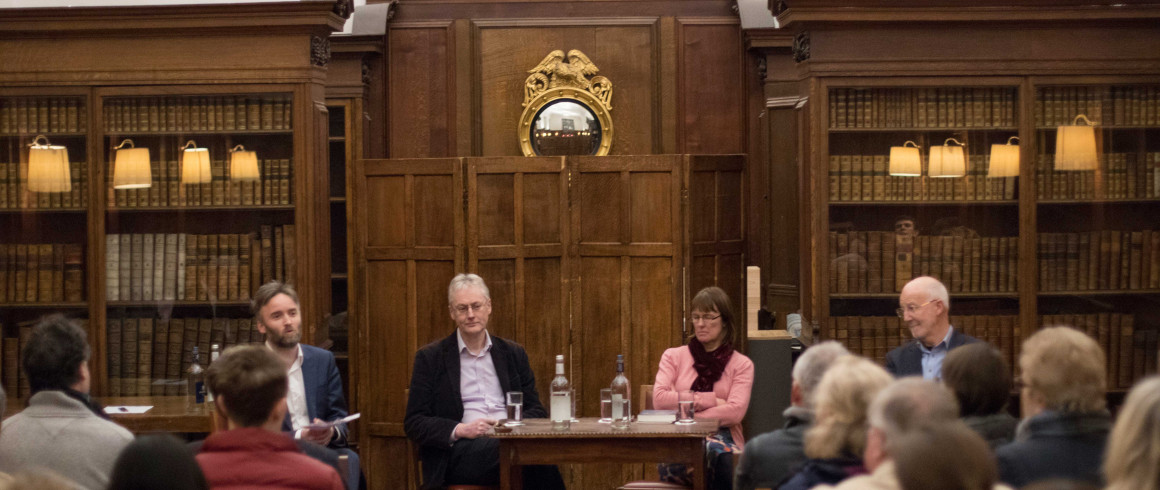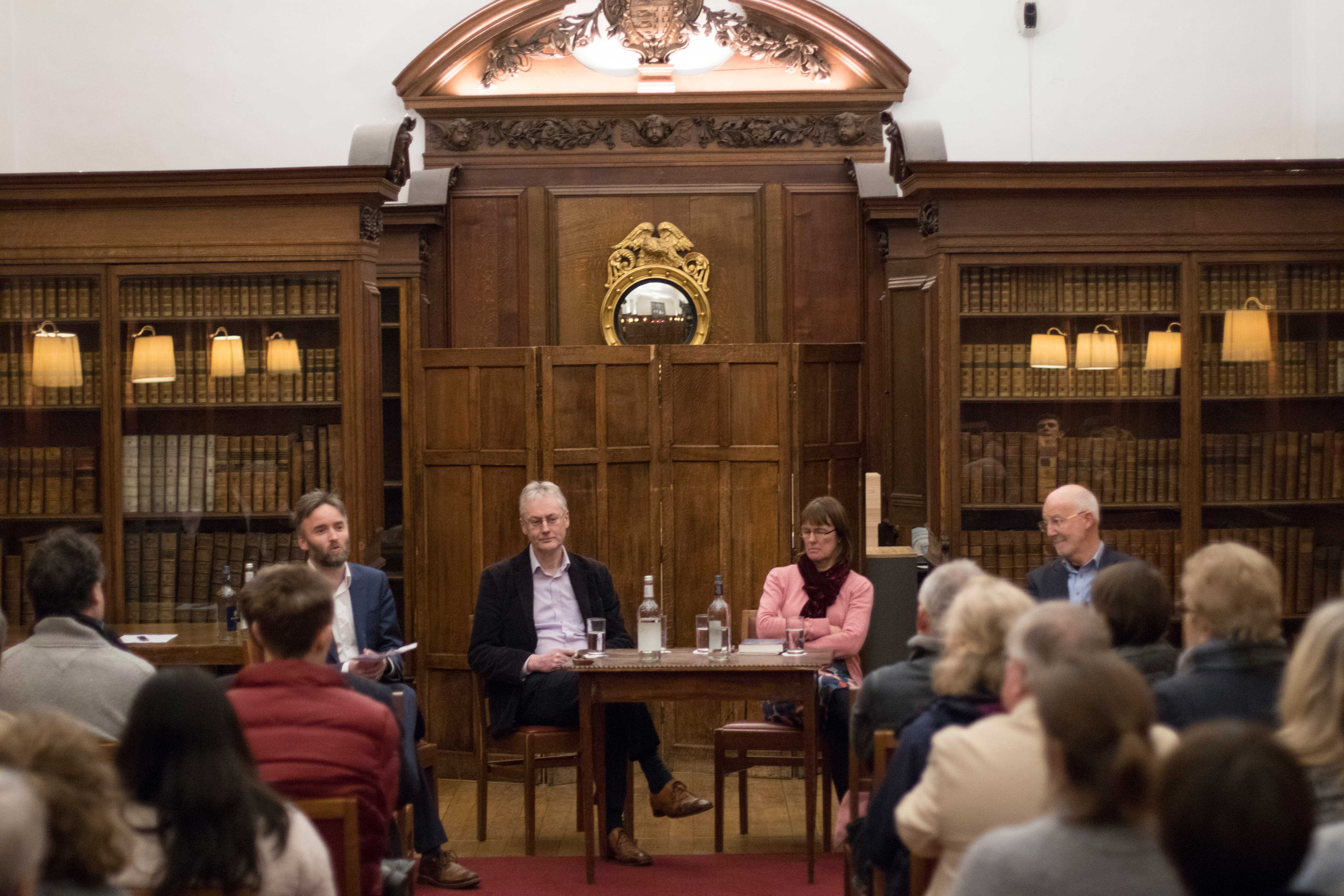Inaugural Pembroke Environment Seminar
The inaugural Pembroke Environment Seminar took place this term, described by Pembroke’s Master as “extraordinarily interdisciplinary” and featuring a panel of people eminently qualified to discuss nature and the environment.
The seminar was chaired by Dr Paul Warde, Pembroke Fellow, Reader in Environmental History, and author of The Environment: A History of the Idea. The panelists were Pembroke Fellows Professor Mike Hulme and Professor Nick Davies FRS, and Professor Kathleen Jamie.
Kathleen Jamie is an award-winning poet and essayist, and Professor of Poetry at the University of Stirling. Her works include Selected Poems (2018), Sightlines (2012) and Findings (2005). Nick Davies is Professor of Behavioural Ecology. Recent publications include Cuckoo: Cheating by Nature (2015). Mike Hulme is Professor of Human Geography and a Fellow of Pembroke College. He was the founding Director of the Tyndall Centre for Climate Change Research and works include Why We Disagree about Climate Change (2009).
The discussion that followed was as engaging and broad as one might expect from such a group. Panellists were encouraged to consider questions such as ‘what do you think of as nature?’ and offered varied answers. Nature might be a landscape or skyscape that moves us (Mike Hulme), a state of mind (Kathleen Jamie), or simply, life on earth (Nick Davies). All agreed that it is almost impossible to define, partly because it so difficult to disentangle the idea of nature from human influence. Even the skies above us are shaped by our influence on the atmosphere, and wildlife is no longer constrained to wild places. The Cambridge peregrines are a perfect example. In the geographical tradition – Mike Hulme is a Professor of Human Geography at Cambridge – students are taught to see the interactions between the human and natural world, not the divisions.
What we understand nature to be is not stable, added Mike Hulme. In different cultures and moments it has been understood differently, and the future will see further change. It is likely, he said, that it will become further assimilated into our cultural experience; through terms like the Anthropocene we think less of anything as beyond humans. Nick Davies contributed the ecologists’ view to this, that each species only sees the parts of the natural world necessary to its survival. As humans we may think we see everything, but there’s a whole world that our senses are unequipped to grasp.
It’s not purely our senses that are limited. As discussion turned to the environment Mike Hulme, who has spent his career studying climate change, highlighted the limits of the human imagination. The term ‘environment’ is increasingly synonymous with a global environment, something that is utterly beyond the capacity of any one person to experience. It invokes deep planetary connections which demand much of our science and our imaginations.
Alongside imagination is wonder, and through wonder respect for the natural world. As an enthusiastic bird watcher, Nick Davies describes his work as watching and wondering. If you have the humility, he said, to go into nature and watch you will find yourself inspired by it. This is easy to convey to young children, still equipped with their natural curiosity about the world around them, but we lose this as we become older. Depriving children of ‘nature literacy’, he argued, is as terrible as depriving them of any other kind of literacy; without knowledge of nature why should they take interest in it?
As a poet Kathleen Jamie strives to engage with nature through language. Language at its best, she said, is clear and nuances, it’s ‘where it’s at’. And it must be truthful; her fieldwork enables truthful contacts with the natural world. Nick Davies, who at several points referred to his enjoyment of Kathleen’s poetry, added that her work encourages the reader to look afresh at the natural world. Poetry, alongside scientific discoveries, can inspire love and respect for the natural world. Bringing artists, scientists and writers together enables a broader approach than is possible in a purely scientific paper, argued Kathleen. Emotional connections with nature and the environment are often absent in scientific writing, but are made possible in poetry. Language acts as a connective tissue, as a space for healing, encouraging us to look in a different way at the world around us.
This connective tissue is a vital part of talking about climate change. You can tell stories about climate change from a scientific perspective, said Mike Hulme, but you need serious dialogue with other disciplines to see the deeper and more complex human story. Nature and the environment can be political; they inspire deep emotion and debate, and warrant intense scientific study. There must be spaces for disciplines to meet and challenge each other. Mike Hulme argued that we must open up the disagreements and look at them more closely. Climate change, he said, cannot be fixed. Like democracy and freedom it is a deeply powerful and innately argumentative idea. We will never go back to a pre-human climate, we can only move forward.

